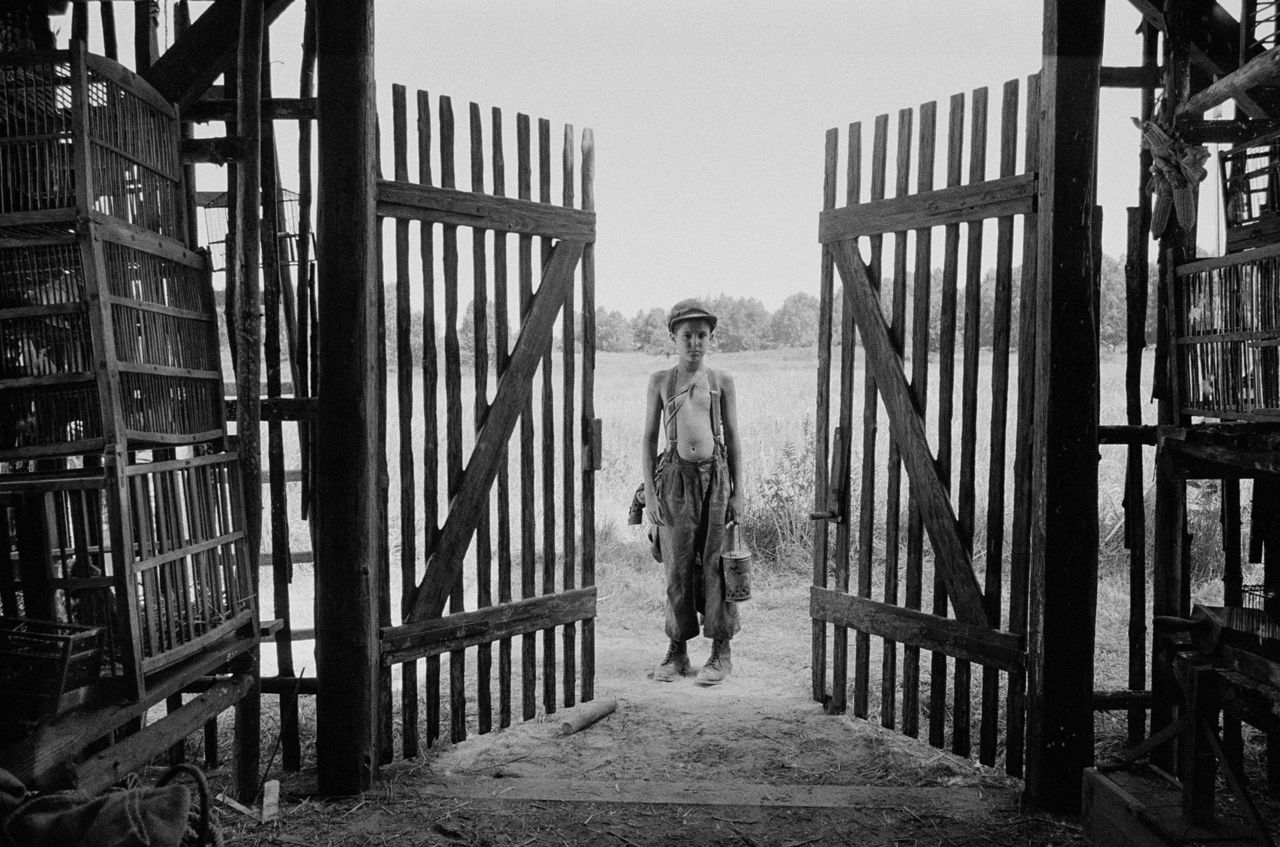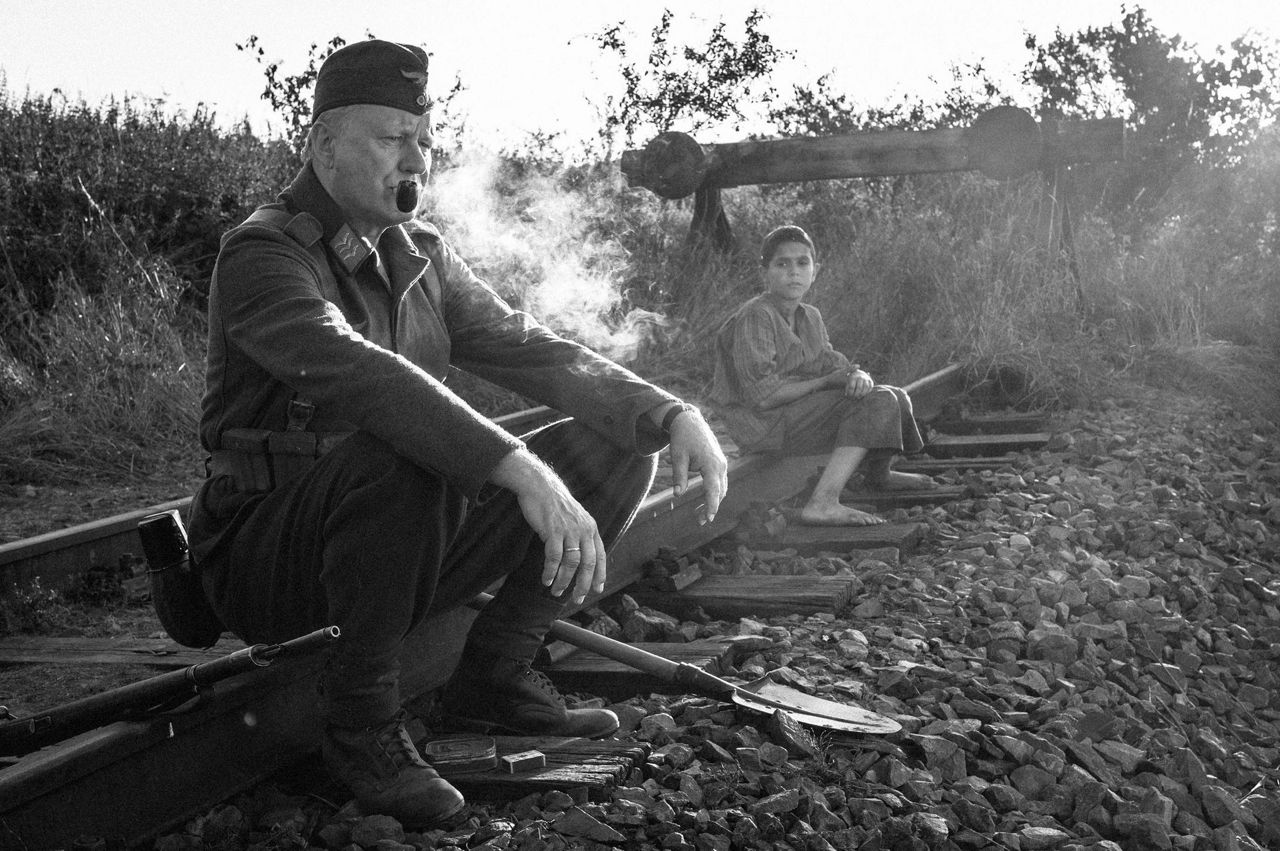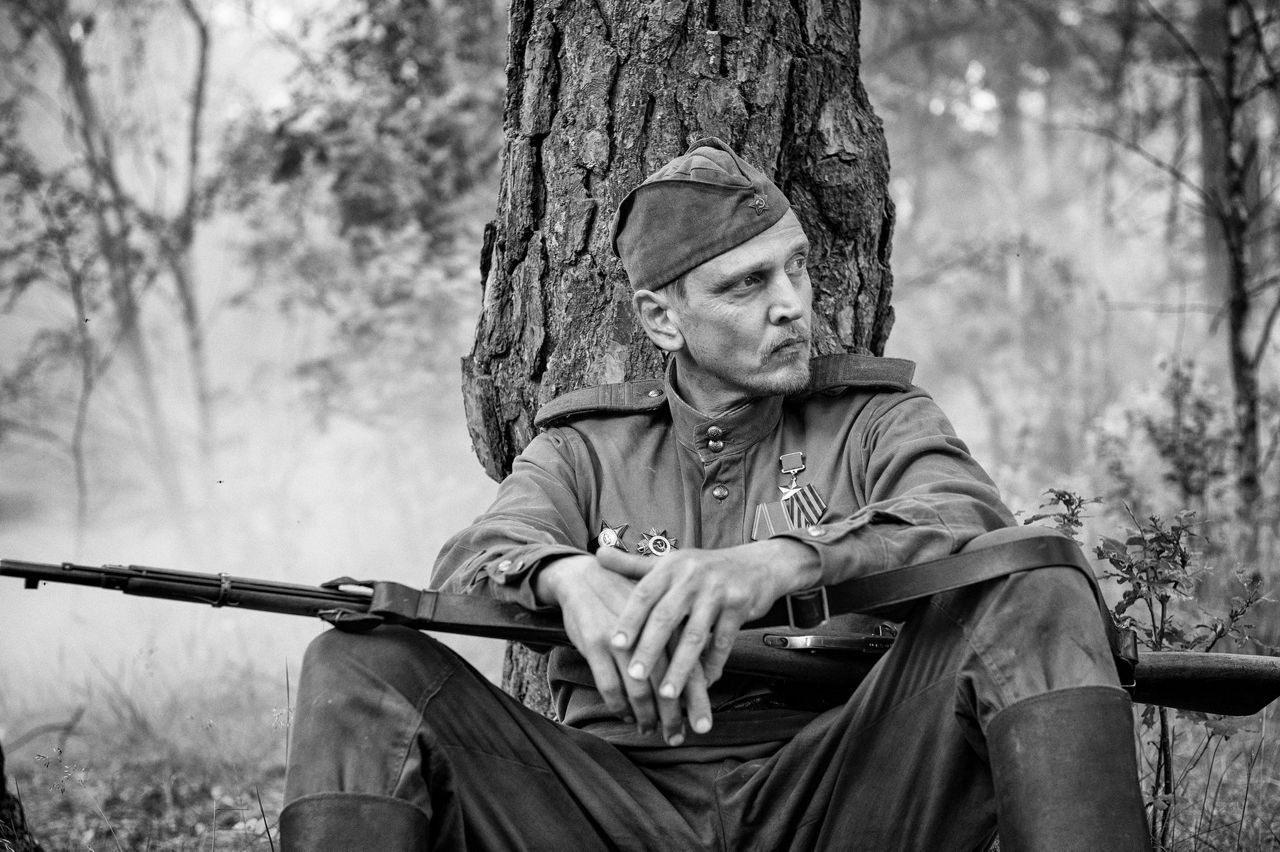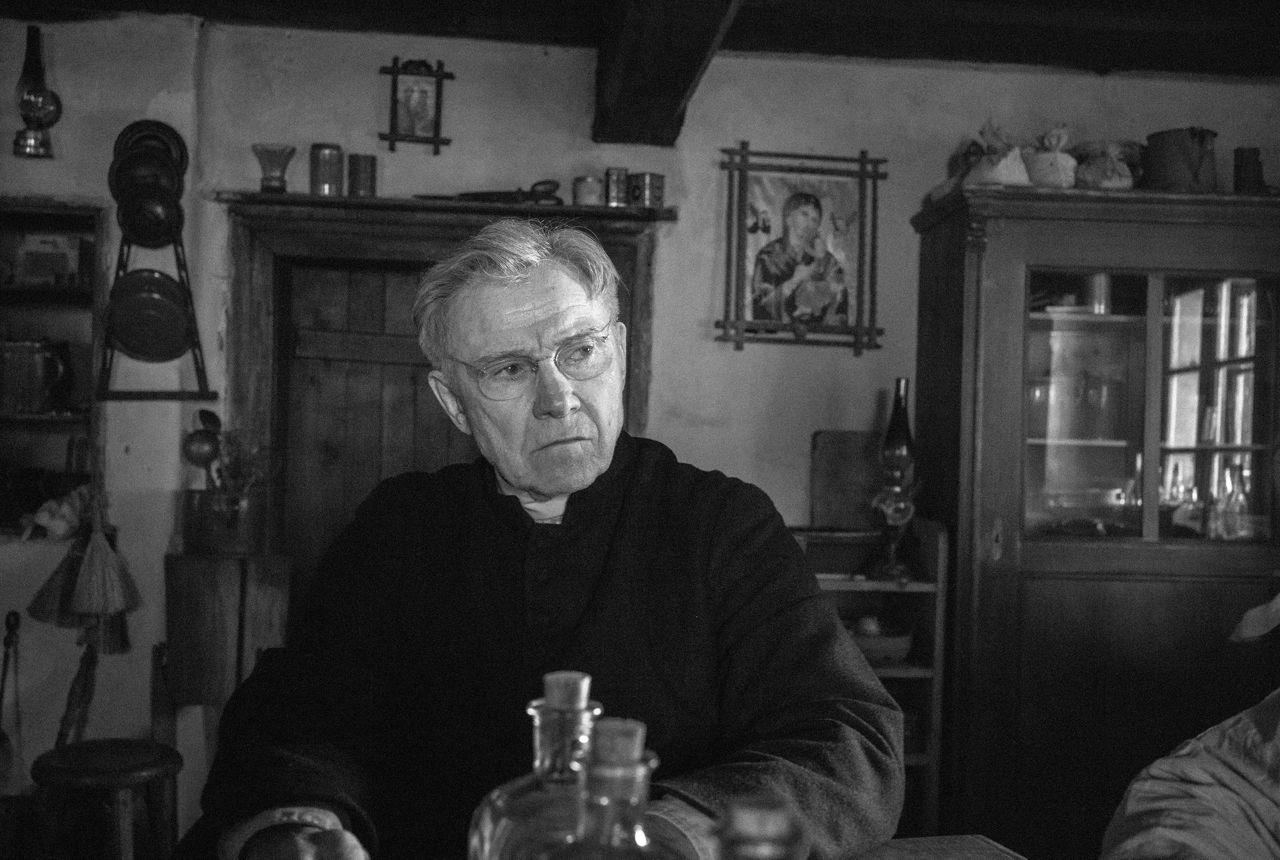Václav Marhoul’s “The Painted Bird” begins with utter bleakness but over the course of its 169-minute running time, keeps finding lower depths of misery. When it premiered last fall at the Venice Film Festival, a scene in which a jealous husband (Udo Kier) gouges the eyes out of a man ogling his wife and then leaves the eyeballs for cats to lick reportedly prompted a stream of walkouts. That, frankly, does a disservice to an earlier scene in which a young boy, after being buried up to his neck, has his bare head pecked bloody by ravens.
“The Painted Bird” is a colossally brutal and pitiless odyssey of human barbarity and cruelty sketched across Eastern Europe during the Holocaust and World War II. It is, to put it mildly, no walk in the park.
The film, about a boy (Petr Kotlár) abandoned by his parents at the age of 6, is based on the 1965 novel of the same name by the Polish-American writer Jerzy Kosinski. “The Painted Bird,” the book, has a curious history. It was much celebrated at the time of its release. Kosinski appeared on the cover of Time magazine; his third book, “Being There,” was adapted into the Peter Sellers film. But his debut sensation, taken as autobiography, was later debunked. Some of its painful histories had basis in fact, others were imagined. Some was written and translated into English by paid assistants.
But “The Painted Bird” hasn’t vanished. For some, it remains a potent chronicle of atrocity with a vivid central metaphor for childhood. The title comes from one of the people that takes in the boy: a bird trapper who, in anguish for his lover, paints a bird before releasing it, rendering it unrecognizable to its flock. The other birds pick it apart in mid-air.
So “The Painted Bird” has been redrawn again, this time as an imposing art film — somber, savage and beautifully shot in 35mm black and white. It’s a form perhaps well suited to Kosinski’s half-true tale, and there’s no grim scene here that Marhoul isn’t eager to shoot handsomely. At times, “The Painted Bird,” which was shortlisted for the best international film Academy Award, verges on a parody of a European art film, so unremittingly committed it is to depicting — sometimes accurately, sometimes gratuitously — humanity’s worst.
“Come and fetch me,” writes the Boy (who goes unnamed) at the outset of the film on the sail of a small boat he sends down a stream. On it he's drawn a picture of himself and his parents, who have left him with an elderly peasant woman (Nina Shunevych). It's a desolate beginning but “The Painted Bird,” plays out like an unceasing, tormenting cycle of out of the frying pan, into the fire.
When the woman dies and the house is consumed by a fire, the Boy sets out through the countryside. But he's greeted fearfully by nearby villagers who curse him as “the devil's seed.” A shaman (Alla Sokolova) judges him a vampire and takes him for a slave. The film proceeds in chapters dedicated to each of the Boy's temporary homes. Each is a dark parable, without lesson, of murder, rape, torture and mutilation. “The Painted Bird" proceeds as a gruesome monolith to a sinister Slavic society.
Marhoul has, I suspect, made exactly the film he set out to over the course of a two-year shoot. (Kotlár visibly ages during the film.) The cinematography, by Vladimír Smutný, is pristine. The acting turns later in the film by Harvey Keitel (as a priest), Stellan Skarsgard and Barry Pepper are appropriately solemn and allow some soulfulness to creep in.
Rays of light here are essentially blotted out. Unblinking and merciless, “The Painted Bird” suffocates in its compassion-less chronicle. It's an endurance test, and I wish I could say it's worth it. The Boy endures it, and maybe it's his perseverance — and, ultimately, his inevitable adoption of the violence that surrounds him — that's meant to leave a mark. But it mostly just leaves you numb.
“The Painted Bird,” an IFC Films release, is not rated by the Motion Picture Association of America but contains graphic violence and savagery. Running time: 169 minutes. Two stars out of four.
___
Follow AP Film Writer Jake Coyle on Twitter at: http://twitter.com/jakecoyleAP
Copyright 2020 The Associated Press. All rights reserved. This material may not be published, broadcast, rewritten or redistributed without permission.






